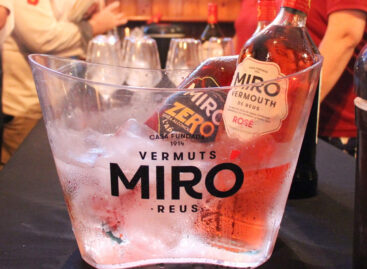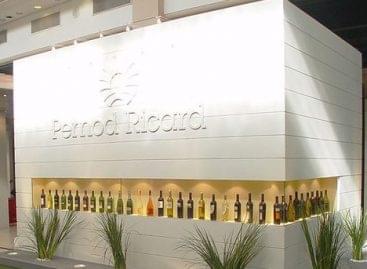Vermouth: The Resurgence of Fortified Wine – Agárdi Distillery Joins the Trend
For many, the word vermouth still evokes memories of Hungary’s iconic socialist-era drink, Éva Vermouth, or later popular international brands like Martini and Cinzano. However, this herb-infused fortified wine has been experiencing a global renaissance, becoming an essential ingredient in modern cocktails. Responding to this trend, Agárdi Distillery has become one of the first Hungarian producers to create a premium, locally made vermouth.
What Exactly Is Vermouth?
Vermouth is a fortified wine infused with wormwood and a blend of various herbs and spices. Traditional ingredients include:
- Gentian,
- Cinnamon,
- Coriander,
- Bitter orange peel,
- Clove,
- Elderflower,
- Calamus root,
- Mint.
While the medicinal benefits of wormwood were known as early as ancient times—Pythagoras soaked it in wine and beer, and Hippocrates used it for rejuvenating treatments—the modern version of vermouth was created in 1786 by Antonio Benedetto Carpano in Turin, Italy. The name derives from the German word “Wermut”, meaning wormwood.
A Hungarian Innovation: Agárdi Distillery’s Vermouth
Recognizing the growing global demand for vermouth, Agárdi Distillery decided to enter the market. László Szabó, co-owner of Agárdi, explained that vermouth, like tequila, is enjoying a renaissance in Western Europe and could become the next gin-tonic in long drinks.
“Two factors inspired us to start producing vermouth: the lack of premium, Hungarian-made vermouth and the opportunity to apply our gin-making expertise to vermouth production. Both share similarities in the use of botanicals,” said László Szabó.
How Vermouth Is Made
The process of creating vermouth is meticulous and similar to gin production:
- Preparing Botanicals: Herbs and spices are chopped or ground and soaked in a water-alcohol mixture for 15-20 days. During this time, sugars and salts dissolve in water, while aromas and oils dissolve in alcohol.
- Wine Selection: Vermouth’s base is a dry wine, typically a blend of neutral, low-tannin wines. The wines are carefully filtered to provide a clean, harmonious foundation.
- Balancing the Flavor: Sugar is added to counteract bitterness, and fine ethyl alcohol stabilizes the drink and increases its alcohol content.
- Blending and Aging: The botanical extract and wine are combined slowly in an oxygen-free environment to achieve perfect harmony. Aging allows the flavors to blend, creating a smooth and balanced product.
Unlike international vermouths, which often have dominant herbal flavors, Agárdi takes a different approach.
“We returned to the original concept of fortified wine. Our vermouth contains fewer botanicals, allowing the wine’s character to shine through. We also highlight the vintage and grape variety on the label, which is unusual for vermouth production,” added László Szabó.
Versatile and Unique
Agárdi’s vermouth has a 17% alcohol content and fits well into a bitter flavor profile. It can be enjoyed on its own, served over ice, or used as a base for long drinks when mixed with tonic. Its balanced, elegant character also makes it a worthy addition to the holiday table.
Vermouth in Modern Cocktails
Today, vermouth is not just a standalone drink but also a key ingredient in classic cocktails such as:
- Manhattan,
- Martini,
- Negroni.
A Brief History of Vermouth
The Cinzano family began commercial production of vermouth in the 19th century, solidifying its place in European drinking culture. Like absinthe, vermouth faced criticism at the turn of the 20th century due to fears about the toxic effects of wormwood. However, this controversy only fueled its popularity, leading to record-breaking success for brands like Cinzano and Martini & Rossi.
A New Era for Vermouth
Agárdi Distillery’s vermouth brings a fresh perspective to the Hungarian market. By balancing tradition with innovation, they have created a premium product that appeals to modern tastes. Whether enjoyed neat, as part of a long drink, or in a sophisticated cocktail, vermouth is reclaiming its status as one of the most versatile and exciting drinks in the world of modern mixology.
Related news
There will always be buyers for quality pálinka
🎧 Hallgasd a cikket: Lejátszás Szünet Folytatás Leállítás Nyelv: Auto…
Read more >Related news
(HU) METRO Gasztro Fesztivál a SIRHA Budapesten – Élmény, inspiráció és valódi megoldások a HoReCa-szakmának
🎧 Hallgasd a cikket: Lejátszás Szünet Folytatás Leállítás Nyelv: Auto…
Read more >








